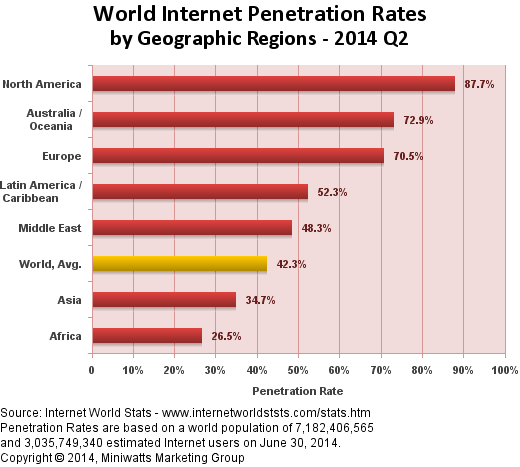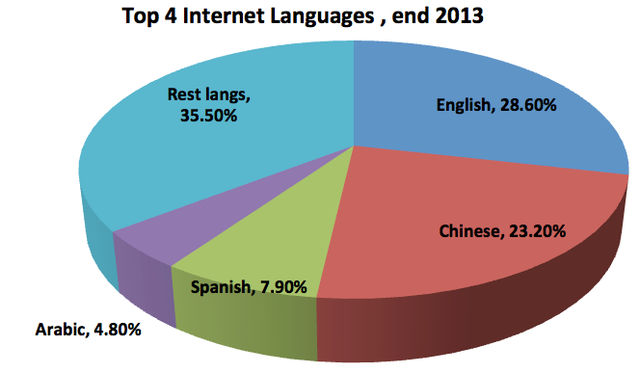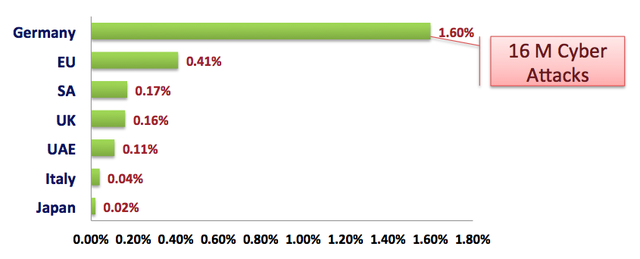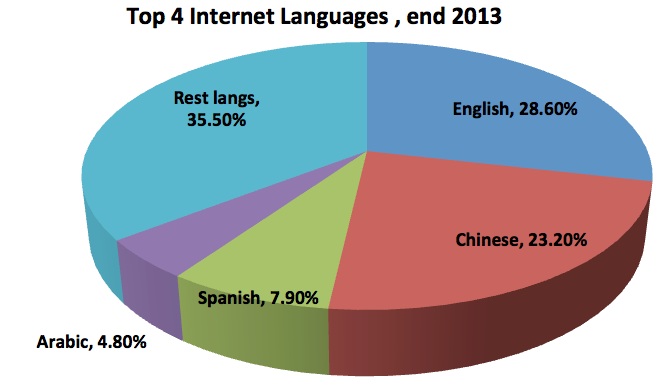In the Middle East three themes are currently being discussed by the Internet community: Advocacy, policy and technology. The aim is to strengthen participation on Internet policies, Internet governance, security and privacy, freedom of expression and rights on the Internet.
Internet governance is complex and highly decentralised. That means the Internet is governed in a “multi-stakeholder” (rather than a multilateral) fashion. According to De Nardis Internet Governance can be divided into six themes:
- Architecture-based intellectual property rights enforcement
- The policies enacted by information intermediaries
- Cyber security governance
- Governance of routing and interconnection
- Internet standards governance
- Control of critical Internet resources
The digital divide
In order to close the digital divide it is important to provide Internet access at an affordable cost and quality. This will have a positive impact on various other areas such as
- Economic equality
- Social mobility
- Democracy
- Economic growth
Let's look at some aspects of Internet governance in more details.
Internet penetration
There are about three billion users on the Internet worldwide. Two thirds are from developing countries. There are 2.3 billion mobile subscribers of which 55% in the developing world. The Internet penetration worldwide is measured to be 42.3%. In the Middle East it is slightly higher at 48.3%. See below the penetration rate for various regions (source: Internet World Stats ).

It is also interesting to look at the languages used on the Internet (see Figure 2). Arabic is among the top four with 4.8% (source: Internet World Stats ).

Cybersecurity
According to the Center for Strategic & International Studies , organisations such as government agencies and high tech companies experienced 155 successful and significant attacks since 2006. For some this led to financial losses of more than a million dollar. 70% of executives from financial institutions believe that cyber security is a strategic risk for their company. In Figure 3 you can see the percentage of cyber attacks for a number of countries compared to the gross domestic product (GDP).

A recent expert report states that the cost of cybercrime comes to an estimated total of 400 billion USD. The cost of cybercrime in terms of percentage of GDP is 0.8%. In comparison, the cost of global drug trade comes to 0.9%.
Europe and the Middle East
In the Internet governance we are seeing three camps: western nations, authoritarian nations and the undecided. The European Commission has repeatedly called for a system of Internet governance fully entrusted to the private sector without Government interference in the day-to-day management, and has supported an open, multi-stakeholder policy dialogue on Internet governance and development. The Arab region supports the transition of technical coordination of the Internet’s name and numbering resources from the United States to an international organisation, meeting the expectations of its multi-stakeholders.
Final remarks and future steps
- How to refine and update Internet Governance by a single set or rules?
- What are the Internet’s architectural principles?
- What are its core values and how are these values being upheld or diminished as the Internet evolves?


Comments 0
The comments section is closed for articles published more than a year ago. If you'd like to inform us of any issues, please contact us.